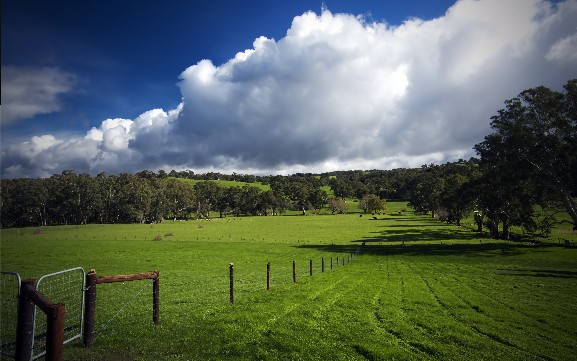"How to Pronounce Chinese Geography in English: A Comprehensive Guide" provides a detailed method for pronouncing Chinese geographical names in English. The guide covers various aspects of Chinese geography, offering correct pronunciation for regions, cities, mountains, rivers, and other geographical features. It aims to help English speakers accurately pronounce these names, enhancing their understanding and appreciation of Chinese geography. Whether for travel, study, or general interest, this guide serves as a valuable resource.
In the realm of geographical exploration, China stands as a towering figure, boasting a diverse landscape that ranges from towering mountains to vast deserts, bustling cities, and serene rivers. As an enthusiast of geography, mastering the pronunciation of Chinese geographical names in English can greatly enhance your understanding and appreciation of this vast country. This guide aims to provide you with a comprehensive and up-to-date solution to pronouncing Chinese geography in English.
China's geographical names often pose challenges due to their unique characters and pronunciation rules. However, with a systematic approach and a bit of practice, you can master these names with ease. This guide will cover various aspects of Chinese geography, including mountains, rivers, provinces, and cities, and provide you with accurate English pronunciations.
1. Understanding the Basics of Chinese Pronunciation
Before diving into the specific names, it's crucial to understand the basics of Chinese pronunciation. Chinese is a tonal language, meaning that the same syllable can have different meanings depending on its tone. There are four main tones in Mandarin Chinese: high, rising, falling-rising, and falling. Additionally, Chinese characters are composed of initials (consonants) and finals (vowels and consonant combinations).
When pronouncing Chinese geographical names in English, we often use approximations based on the closest English sounds. It's important to note that these approximations may not be perfect, but they will help you communicate effectively.
2. Pronouncing Chinese Mountains
China is renowned for its majestic mountains, each with its own unique name and pronunciation.
2.1. The Himalayas (喜马拉雅山脉)
*Pronunciation*: /ˌhɪməˈleɪjə/
The Himalayas, also known as the Himalaya Mountains, are a mountain range in Asia separating the Indian subcontinent from the Tibetan Plateau. They are the world's highest mountains, including Mount Everest, the Earth's highest point.
2.2. Kunlun Mountains (昆仑山脉)
*Pronunciation*: /ˈkʊnlən/
The Kunlun Mountains are a major mountain range in western China, extending from the Tibetan Plateau to the Tarim Basin. They are known for their mystical significance in Chinese mythology and history.
2.3. Taihang Mountains (太行山脉)
*Pronunciation*: /ˈtaɪˈhæŋ/
The Taihang Mountains are a mountain range in northern China, running parallel to the Yellow River. They are famous for their scenic beauty and historical significance.
3. Pronouncing Chinese Rivers
China's rivers are vital for agriculture, transportation, and culture. Here are some of the most famous rivers and their English pronunciations.
3.1. Yangtze River (长江)

*Pronunciation*: /ˈjæŋdzɪ/
The Yangtze River, also known as the Chang Jiang, is the longest river in Asia and the third-longest in the world. It flows through multiple provinces and cities, including Chongqing and Shanghai.
3.2. Yellow River (黄河)
*Pronunciation*: /ˈjeləʊ/
The Yellow River, also known as the Huang He, is the second-longest river in China. It is known for its rich history and cultural significance, as well as its frequent floods.
3.3. Pearl River (珠江)
*Pronunciation*: /ˈdʒuː/
The Pearl River is a major river system in southern China, flowing through Guangdong Province. It is known for its fertile land and bustling economy.
4. Pronouncing Chinese Provinces
China is divided into multiple provinces, each with its own unique name and pronunciation.
4.1. Sichuan Province (四川省)
*Pronunciation*: /sɪˈtʃuːən/
Sichuan Province is known for its spicy cuisine, panda bears, and stunning scenery. It is located in southwestern China.

4.2. Guangdong Province (广东省)
*Pronunciation*: /ˈɡwɑːŋˈdʊŋ/
Guangdong Province is located in southern China and is known for its bustling economy, particularly in the cities of Guangzhou and Shenzhen.
4.3. Shaanxi Province (陕西省)
*Pronunciation*: /ʃɑːnˈsiː/
Shaanxi Province is located in northwestern China and is known for its rich history and cultural heritage, including the Terracotta Army.
5. Pronouncing Chinese Cities
China's cities are hubs of culture, economy, and innovation. Here are some of the most famous cities and their English pronunciations.
5.1. Beijing (北京市)
*Pronunciation*: /beɪˈdʒɪŋ/
Beijing, the capital of China, is a city with a rich history and cultural heritage. It is known for its iconic landmarks, such as the Forbidden City and the Great Wall.
5.2. Shanghai (上海市)
*Pronunciation*: /ʃæŋˈhaɪ/

Shanghai is China's most populous city and a major financial and economic hub. It is known for its skyline, bustling nightlife, and diverse cuisine.
5.3. Xi'an (西安市)
*Pronunciation*: /ʃiːˈɑːn/
Xi'an is a city in Shaanxi Province, known for its rich history and cultural heritage. It is the starting point of the ancient Silk Road and is home to the Terracotta Army.
6. Tips for Pronouncing Chinese Geography in English
Mastering the pronunciation of Chinese geographical names in English takes practice and patience. Here are some tips to help you along the way:
Listen and Repeat: Use online resources or language apps to listen to the correct pronunciation of Chinese geographical names. Repeat after the speaker to improve your accuracy.
Break Down the Syllables: Chinese geographical names can be broken down into syllables, making them easier to pronounce. Focus on the initials and finals of each syllable.
Practice Tongues Twisters: Tongue twisters that incorporate Chinese geographical names can help you improve your pronunciation and fluency.
Seek Feedback: Practice with a native speaker or language tutor who can provide feedback on your pronunciation and offer tips for improvement.
In conclusion, pronouncing Chinese geographical names in English can be a challenging but rewarding endeavor. By understanding the basics of Chinese pronunciation, practicing with online resources, and seeking feedback, you can master these names and gain a deeper appreciation for China's diverse landscape. Happy exploring!








